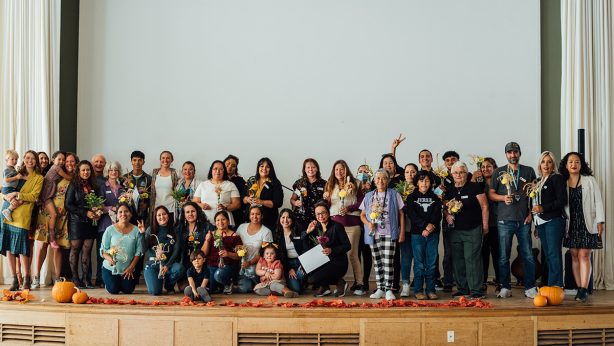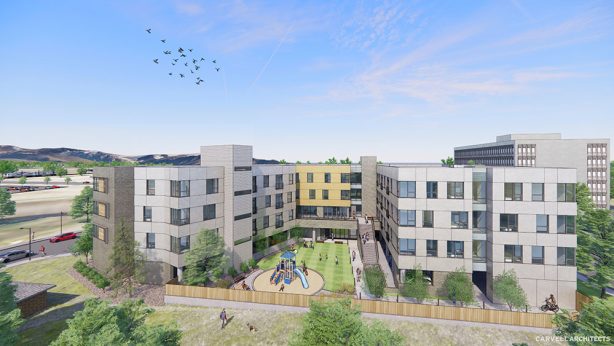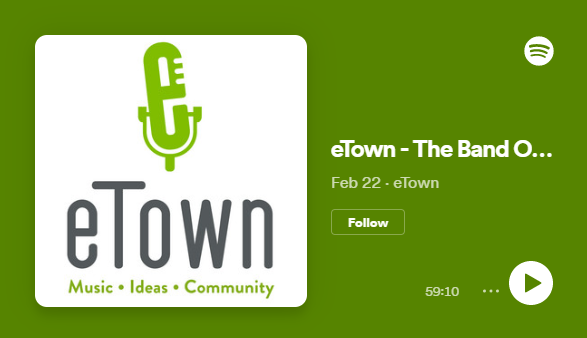Blue Star Recyclers Improving Community through Equal Employment
Denver – Each year, more than 50,000 people diagnosed with autism turn 18 in the United States. That is a significant part of the population entering adulthood, and subsequently the working world, yet only a small fraction will ever receive a job.
This is the pressing issue facing the disabled population today: less than 20% are currently employed. And Bill Morris, CEO and Founder of Blue Star Recyclers, believes wholeheartedly that this problem stems from social differences and nothing more. According to Morris, disabled persons make excellent employees, and he has the research, statistics and experience to prove it.
Founded in November of 2009, Blue Star Recyclers hires members of the disabled community to run the backbone of his nonprofit. When Morris decided to completely change careers after 25 years, he took notice of two major issues in the community. One being the current employment rate of disabled persons, and the other was the nation’s critical lack of effort in regards to ethical recycling. And when the two were combined, a revolutionary business was born.
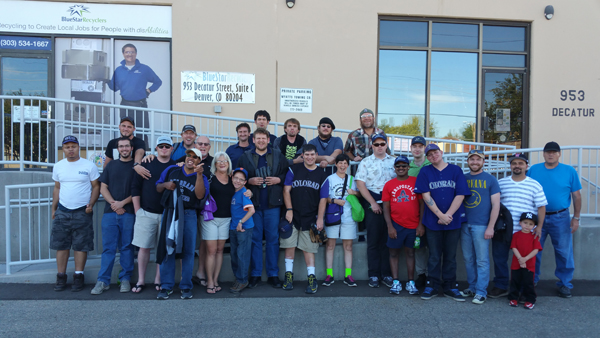
“The primary mission of Blue star is creating meaningful employment for people with autism and other disabilities,” Morris explained. “We brought the two together and something magical happened. We were able to create jobs by recycling technology.”
And despite the odds, Blue Star currently has 31 employees, 24 of which have a diagnosed disability. What’s more, the nonprofit has employment rates that blow every competitor out of the water.
Morris explained that since the company’s birth in 2010, his workforce has seen a zero rate in turnovers, absenteeism and lost time accidents. In six years, Blue Star Recyclers has never experienced an employee missing a day of work. Or calling in sick. And Morris tributes this to a team that actually enjoys their work and displays an unprecedented work ethic.
“When they get the chance to work, they knock it out of the park,” Morris said. “They do their jobs really well.”
And while Blue Star is busy making a major social impact in the Sun Valley community, their environmental impact is no stranger to success either. In the organizations’ first year of business in 2010, they recycled 250,000 pounds of electronics. Six years later and they are recycling 2.5 million pounds annually. And according to Morris, they have recycled 10 million pounds of electronics to date. Or in other works, enough to completely fill Mile High Stadium more than two times over.
The only issue Morris lamented, is the community’s lack of education regarding the importance of recycling electronics. Not only are a meager one fifth of discarded electronics ethically recycled, but 100% of the materials that compose these electronics are made entirely of recyclable material. And for a consumer or business looking to get rid of these types of items, it’s a fairly easy task.
Morris explained that Blue Star’s average day starts with picking up the electronics, which typically come from businesses and universities. Back at the Social Enterprise Foundry, the team unloads the trucks and the warehouse team begins to sort through the recycled material. The production team the decides which items can be refurbished and which items will be sent to an end of life processor. Morris explained that it is these companies who take various electronics to their final stages of life, where the metals and plastics are separated out and melted down.
Despite the convenience of utilizing Blue Star’s services, a majority of the community doesn’t realize that the company is even a viable option. Many end up opting for landfills or back alley ways to dump their electrical gear. But if recycling these items increased, Morris explained that a cycle of positive change would ensue.
Since Blue Star’s mission is completely volume driven, the more recycling that takes place in Denver, the greater potential for more employment opportunities. Or as Morris explained, with an increase of roughly 16 computers each day, he could create another job.
And it’s safe to say he has the employment base to handle an influx in volume. Morris recently had a colleague conduct a two month long survey that recorded the number of minutes each day his employees worked while on the clock. He wanted to gauge their level of attentiveness and work productivity. While the average American employee is engaged 48% of the time, Morris’ team saw an engagement of 98.43%. That figure is practically unheard of in the working world.
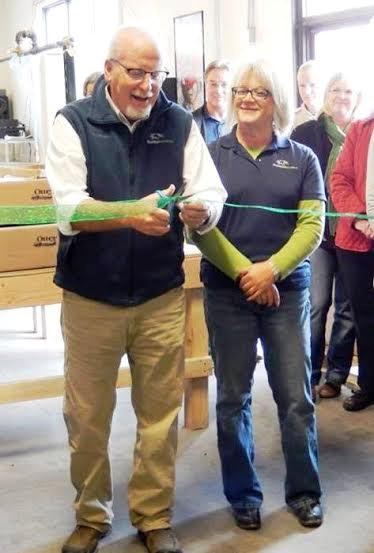
And after a full year in Denver, Morris has high hopes for Blue Star’s success in their newest location. The company has been a tenant of the Urban Land Conservancy for just over a year now, and has watched their production rates soar. Originally recycling 25,000 pounds of material each month, Blue Star’s Denver warehouse now processes a monthly rate of almost 100,000 pounds of recycled material. And this all stems from a man who had no clue about the recycling business ten years ago, but hoped to make a change. To this day Morris disregards his employees social differences, and embraces their strong work ethic and excitement on the job.
Or as he said, “I could care less with what is wrong with them, I just want to find out what is right with them.”

